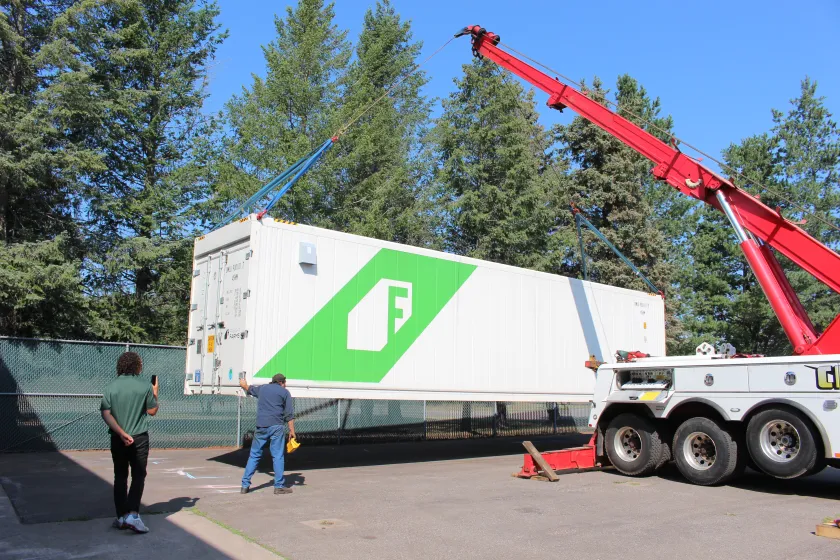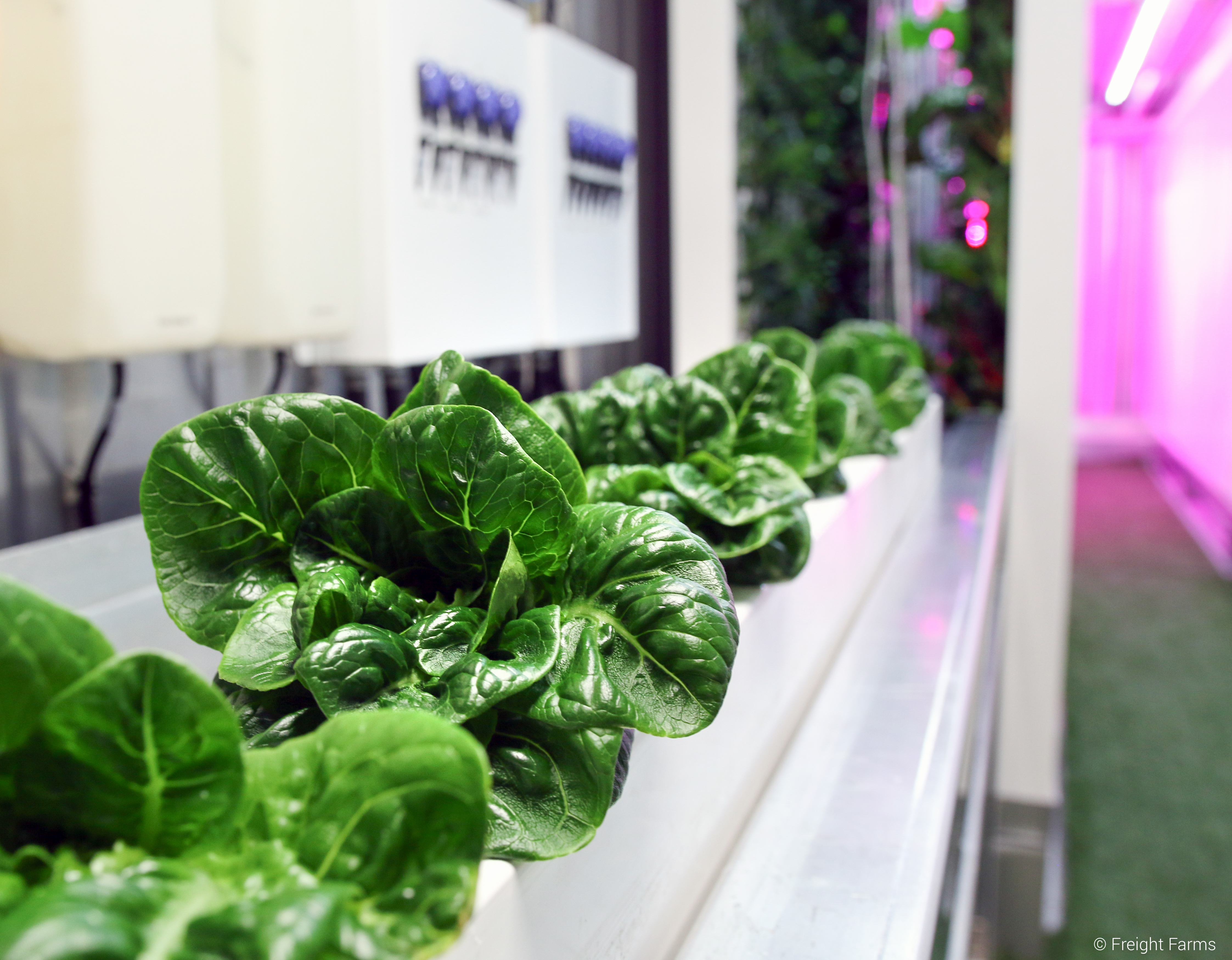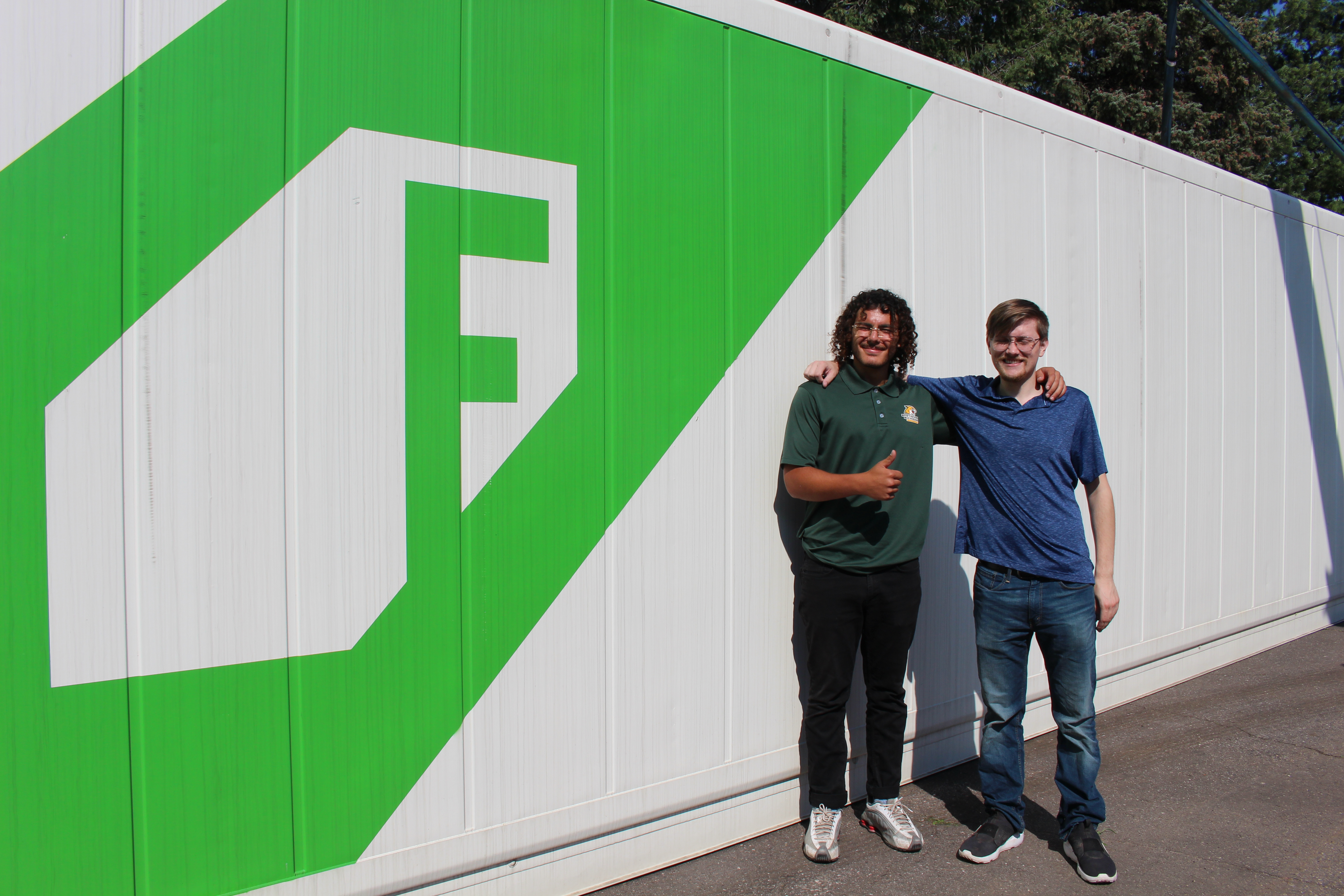Northern Michigan University's indoor agriculture program has received a special delivery to enhance education, research and partnership opportunities. A new shipping container that houses a state-of-the-art growing center is located just outside of the Jacobetti Complex. Its operation will be supervised by students and the produce it generates will be distributed to NMU's hospitality management program and campus dining facilities.
The shipping container is equipped with cloud software so that water, nutrient and pH levels can be monitored and controlled remotely via cell phone. LED lighting for the plants doubles as a heat source. There is also an air-conditioning system for additional climate control.
“The container has its own seeding area, so students will germinate seeds, grow seedlings and transfer those into the vertical growing channels to reach full maturity,” said Kim Smith Kolasa, assistant professor and program coordinator. “They will grow leafy greens—from lettuces to kale to chards—and herbs such as basil, cilantro and parsley to share with campus. On the research and experimental side, they will work on growing fruiting crops like strawberries, cucumbers and tomatoes.”
Kolasa said the shipping container delivery from Freight Farms Greenery in New Jersey included a “welcome kit” of seeds, substrate and nutrients to launch the first round of germination. Within three weeks, the seedlings will be transferred into the vertical channels and full crops are expected five to eight weeks later.
“This means a lot for the program because it gives us immediate space that was really needed,” said assistant professor Evan Lucas, as he watched the container roll in on a semi and be lowered into place. “We've already exceeded the lab space we had last year because we added seven pieces of equipment. We can't fit a lot of students at once in the container because it's mostly taken up with grow space, but it provides a lot of opportunity for research and use in upper-level classes. It's impressive that we've already reached this point only one year into the program.”
After students gain experience with the stocked Freight Farms Greenery container, which NMU purchased with a Michigan Department of Agriculture rural development grant, faculty envision purchasing an empty, used model at some point so that students can outfit it for operation themselves. Shipping containers are being distributed across the globe. They can be “daisy chained” and stacked in urban areas where space is at a premium.
Lucas said there is also a plan to add commercial growing systems in the former airplane hangar in the Jacobetti Complex. The combination of the building and self-contained setups will better prepare students for what they are most likely to encounter in the professional realm after graduation.
“I'm from Atlanta, Ga., and I came to Northern because I'm really interested in new methods of sustainability,” said Amir Chahine, co-president of the NMU Indoor Ag Club, who will oversee the sales and business partnership aspects of the shipping container operation. “I'm surprised indoor agriculture isn't more widespread. That's what I'm here for—to make this a more common practice.”
“I oversee all operations and research, along with volunteer scheduling,” said co-president Zachary Boyer of Flushing, Mich. “I was studying biochemistry elsewhere and saw the medicinal plant chemistry program here. Then COVID hit and I saw this program pop up. I became a lab assistant and worked my way in from there. It's exciting to be involved and to see this container growing unit on campus.”
Find more information on NMU's indoor agriculture program here.
Media contacts: Kim Smith Kolasa, kimbersm@nmu.edu; and Evan Lucas, evlucas@nmu.edu.



